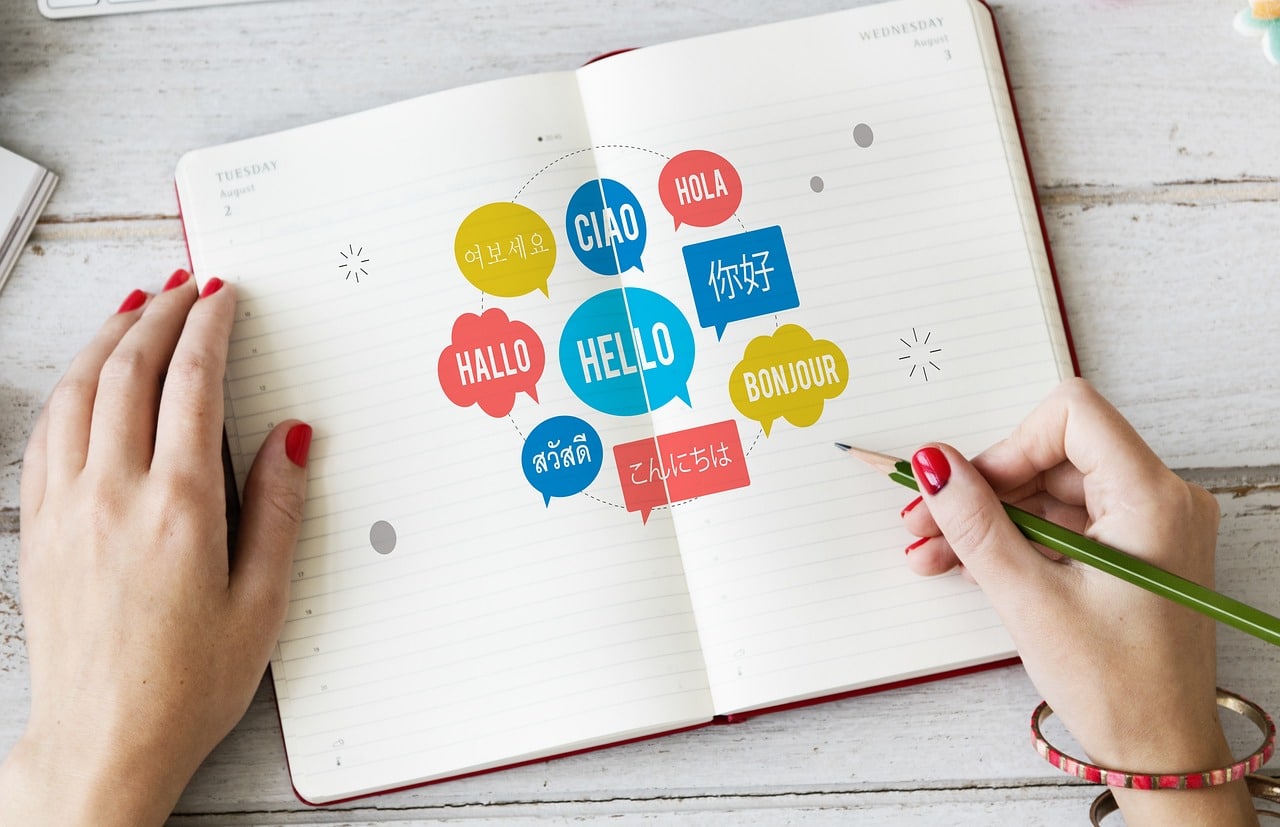While residents of Cyprus are among the most multilingual on the continent, those born and raised in Britain are the least. Alix Norman finds out more
Sixty five per cent of adults in the EU speak at least two languages. In Cyprus, that number rises to a staggering 90 per cent, according to a recent study from Eurostat.
Well within the top 10 European countries for bilingualism, Cyprus still lags behind Sweden, Latvia, and Denmark (at 97, 96 and 95 per cent respectively). But education, age and urbanisation play a huge part. If you’re a Cypriot who attended university, are below 34 years of age, and live in an urban area, you’re more likely to speak at least two languages – probably Greek and English.
But what about multilingualism? If speaking two tongues is common, how often might you meet a European who’s fluent in several languages?
In Luxembourg, the answer is ‘almost everywhere’! A recent study found that this tiny nation was the most multilingual country in Europe. The majority of the population speak four languages: Luxembourgish is the mother tongue, both French and German are co-official languages, and English is taught in schools.
But Cyprus isn’t far behind. While there are no exact statistics on local multilingualism, the cosmopolitan nature of the island lends itself to numerous languages. Greek and English are compulsory in the education system, while electives such as French, German and Spanish are common. Many of the older generation speak Greek, Turkish and English. And the island’s foreign residents often speak multiple tongues.
Most Asian immigrants speak Greek and/or English through necessity, as well as their mother tongue. If they were raised in a multilingual country, such as India or the Philippines, they might well speak more. Similarly, Cypriots who grew up in Africa were often raised with various languages – “I speak Shona and Ndbele, as well as Greek and English,” says Loucas, who was born in Zimbabwe, while South African born Jim speaks English, Greek, Afrikaans and Sotho.
Many of the island’s European arrivals also often demonstrate a fluency in several different tongues. “I spoke Latvian at home, learnt Russian at school, English at university in the UK, and Greek in Cyprus,” says Katrina, a 30-year-old accountant based in Nicosia. “Because I married a Kuwaiti, my eight-year-old daughter speaks Arabic to her father, Russian to me, Greek in school, and English with her friends.”
In later life, this multilingualism will be highly beneficial. Children who are multilingual from birth often lag behind their monolingual peers in early life: whether you’re learning one language or more, total vocabulary acquisition occurs at the same rate. The average eight-year-old knows 14,000 words in total; if multilingual, these words will be split across all languages rather than just the one.
But the disparity fades with time; as the child ages, their vocabulary increases across all the languages they speak, until they know roughly the same amount of words in each. And this is a great advantage. Along with the obvious benefits (cultural understanding, better communication, improved job prospects), several studies have proven that multilingual children tend to perform better in school and achieve greater success in later life. Plus, speaking multiple languages has been shown to delay the onset of age-related cognitive decline and dementia.
“My father is from Cyprus, my mother from Italy, and they communicate in English,” says 26-year-old Limassolian, Vittoria. “I remember confusing my kindergarten teachers by dropping Italian words into my conversation when I just didn’t know the Greek equivalent. But by the time I was in high school, I could switch easily between all three.
“It was very helpful,” she adds. “And not just in terms of making friends. I studied microbiology at university; Greek is a huge boon in the sciences, where many words are Hellenic in origin. And Italian is based on Latin, from which we get many English terms; a helpful crossover.”
In terms of native speakers, Mandarin is the most common language on the planet at 1.1 billion speakers. But add in non-native speakers, and that changes to English, with 1.4 billion native and non-native speakers worldwide. Which means that many Anglophones are loath to learn another language. Even when they live abroad!
“I’ve been a tour rep in Napa for the last two years,” says 24-year-old Bristolian, Pete. “I only deal with tourists from Britain, so I don’t really need to speak any other languages. Yes, I know a few words of Greek, but everyone on the island – especially in the hospitality industry – speaks really good English. So I’ve never needed to learn anything else. I feel a bit guilty; I ought to speak more of the language. But I’ll probably be in Spain next year, maybe Turkey after that. What good will Greek do me then?”
In the Eurostat study, UK nationals scored by far the worst in terms of multilingualism. Just 34 per cent of Brits speak one or more additional languages. And that often holds true even for those of foreign descent.
“My parents emigrated from Cyprus to the UK in the 1960s,” says 51-year-old London-born Marco. “But my brother and I went to English schools, had English friends. We watched the BBC and listened to Capital Radio. And while we did attend Greek lessons on Saturday mornings, it never really stuck.”
This Anglicisation made it hard, Marco adds, when relatives arrived. “I remember my yiayia visiting us in London each year. She was born and brought up in Famagusta and, like many of her generation, spoke both Greek and Turkish. But the only English words she knew were ‘yes’, ‘thank you’ and ‘Coca Cola’. It made it hard to communicate.”
When Marco and son moved to Larnaca last year, the British tendency for monolingualism caused further problems. “For the first time, I could see what a mistake I’d made by not learning Greek. Not for me, but for my teenage son. Like me, he only speaks English. And yet my friends’ kids know two or three languages. I can see how useful it is,” Marco concludes. “And what an advantage this multilingualism will be to them in the future. I think that speaking just one language, no matter how well, really does limit your understanding of the world.”








Click here to change your cookie preferences